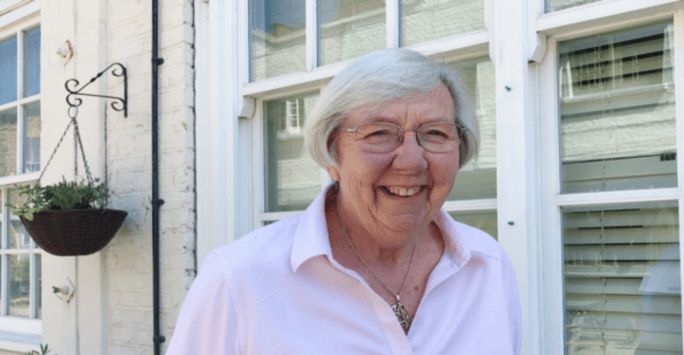
Two words come to mind when describing the Liverpool Literary Festival’s conversation with Professor Dame Averil Mansfield: warm and inspiring. Sat in the Legate Lecture Theatre – a room named after Mansfield’s dean during her time at the university, and the room she wrote her final papers in – it is hard not to feel a sense of intimacy and a step back in time with every word she speaks.
One of the first things Mansfield notes is the number of faces she recognizes in the audience; old friends and colleagues here to listen to her talk about her life and the experiences they shared. And what a life she has led. Being the first female professor of surgery in the United Kingdom, at a time when only two percent of surgeons were women, Mansfield is uniquely poised to discuss the progression of the medical profession. Starting with her childhood in a working-class home, she describes borrowing books from local libraries and being inspired by both fictional and non-fictional accounts of surgery, telling us an anecdote of how they inspired her to perform repeated appendix removals on her panda soft toy.
One thing Professor Mansfield makes clear throughout the event is that she “really, really doesn’t see [herself] as a pioneer”. The progress she pushed for as a young surgeon – setting up a society for female surgeons for one – was about making sure women knew that her path was a career possibility, not just something to train in. She explains that she “lived, breathed and ate Broadgreen Hospital” and never felt discriminated against during her time there. This is balanced by one story of a superior telling her, after she announced she was getting married: “what a pity – what a career you might have had”. While we can look back at the change in medical culture and inclusion that Mansfield brought about, she still looks forward. She sees the modern problems that the field faces with burnout and lack of resources, lamenting that “we don’t have the capacity we need for our patients, but that’s how it was... and I suppose it still is”.
After an aside in which she discusses her life-long love of music and gives advice to current and future students to restore the support structures and camaraderie of her time in the profession, the event is opened to the audience for questions. With so many friends and colleagues in the audience, this section feels looser than most Q&A’s, and the event ends on a warm, if slightly somber note, with a feeling of longing for this profession that they have all loved to be given what it needs to thrive.